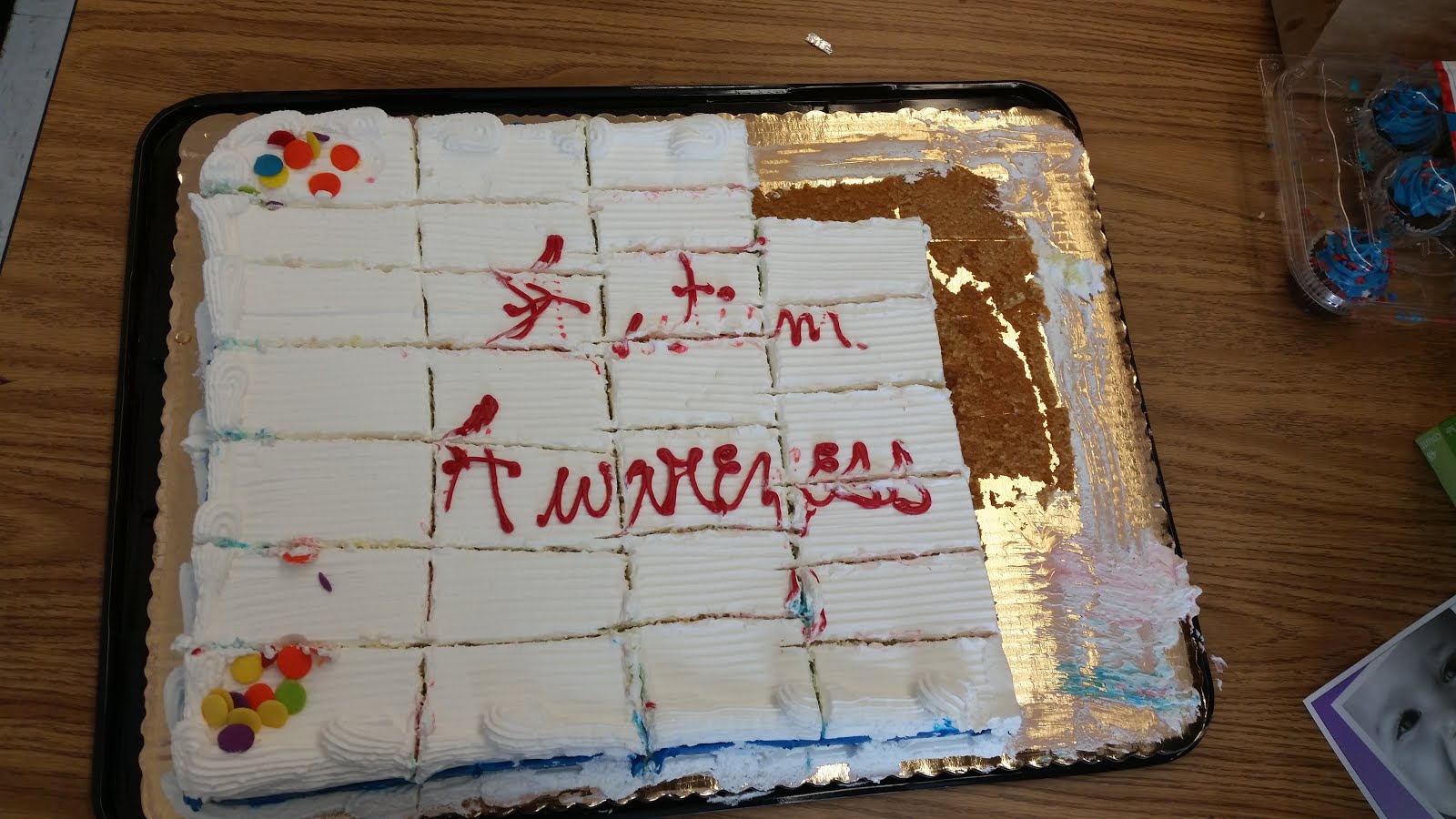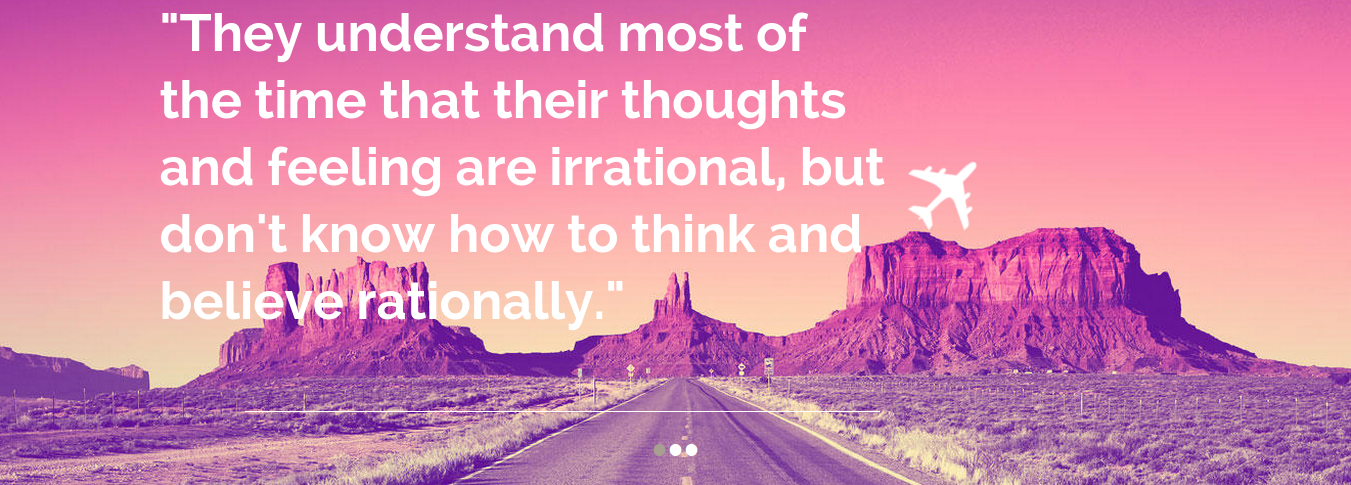In my last two blog posts, I introduced raders to my You and The World and shared with readers my original research, which composed of creating a survey and interviewing a fellow classmate. In both blog posts, I have explained that it is importing to bring awareness to America's broken mental health care system and stressed the impact of educating the youth about the breaches in the current system. Because I did not want to be someone who preaches what they do not practice, I crafted a 3-step plan to bring awareness to this issue because I believe, as youth, we have the power to drive salient discussions that can engender effective results.
My 3 Step Plan consisted of two collaborations and 1 independent project.
Bake Sale collaboration with Opoku Kwateng
Presentation at The Franklin Institute
Website collaboration with Jamina Regino and Jhazzelle Majurucon
Bake Sale
Opoku Kwateng and I held a bake sale on the 22nd of May during lunch to raise money for Autism Awareness. When I first learned that his issue was autism awareness, I did not immediately think a collaboration would be likely due to the focus of one mental illness; however, I soon realized that dealing with specific types of mental illness is as important as dealing with a broader assessment of mental illnesses. Opoku approached me and proposed the idea of a bake sale and I ultimately agreed. We then took about two weeks to prepare and advertise our bake sale.
 The main attraction! Vanilla cake with the words "Autism Awareness" iced deliciously onto the surface.
The main attraction! Vanilla cake with the words "Autism Awareness" iced deliciously onto the surface.
 Informational pamphlets were distributed to those who purchased items and even those who did not.
Informational pamphlets were distributed to those who purchased items and even those who did not.
 Through our successful partnership, we donated $245 to the Autism Society Organization stationed in Mount Laurel, NJ
Through our successful partnership, we donated $245 to the Autism Society Organization stationed in Mount Laurel, NJ
I believe the bake sale was indeed successful in bringing awareness because it reminded that mental illnesses exist and that it is impactful. Our bake sale also helped raise money for autism research, which will help bring awareness to this specific type of mental illness.
TFI Presentation:
The second part of my Agent of Change plan was to deliver a presentation at The Franklin Institute to my 9th grade peers. I thought this was an interesting setting because most presentations were held at school. In my presentation, I explained where I got my inspiration for bringing awareness to America's broken healthcare system and educated my grade about the detrimental impact the gaps in the system engender. I provided a few statistics, personal anecdotes, and quotes from credible sources to support my message. At the end, I explained that it is most important that we break the discussion stigma affiliated with mental illnesses and make those who are mentally challenged feel accepted and welcomed into society.
Highlights from presentation: uploading error
In the end, giving this presentation allowed me to educate my peers on something they may have not been aware about.
Step 3: Website
With the help of Jae and Jhazzelle, we created a website to inform people about social anxiety, another specific type of mental illness. We decided to create an alliance after we learned our issues centered around mental health.
Some screenshots from our website.
Our website explored the definition of social anxiety, personal anxiety quotes, and raising awareness


The special feature of our website was the tongue-twister challenge:
From website : "I will simply explain how you could raise awareness to Social Anxiety since I found this really cool website that will explain further the details to raising awareness for Social Anxiety. Some people may call it a "challenge", but this website calls it the #TongueTwisterTask. The #TongueTwisterTask is the idea to raise awareness to social anxiety because of the fact that people who suffer from this condition avoid social situations and public situations. It's as if their lives are an impossible tongue twister and the words in their minds are all tangled up.
How do I participate?
If you would like to participate, you make a short video of just yourself or with a friend or a family member doing a tongue twister three times fast.
When you are done doing this challenge, post the video on social media sites such as: facebook, instagram, twitter, etc. using the #TongueTwisterTask hashtag. But, wait! Don't forget to challenge two or more people to donate or post their video within 24 hours and send us a link to your post or your friends'. You could even send us more tongue twisters!
Here are some tongue twister ideas:
“She sells sea shells by the sea shore.”
“Red leather, yellow leather.”
“Peter Piper picked a peck of pickled peppers.”
“He shot three free throws. He shot three free throws.”
“Lesser leather never weathered wetter weather better.”
“Pad kid poured curd pulled cod.”
“The sixth sick sheik’s sixth sheep’s sick.”
"How can a clam cram in a clean cream can?"
"Send toast to ten tense stout saints' ten tall tents."
"Sheena leads, Sheila needs."
"Can you can a can as a canner can can a can?"
"You cuss, I cuss, we all cuss, for asparagus!"
"Six sick hicks nick six slick bricks with picks and sticks."
"Timid talking turtles told Timmy to tell tommy to talk to Tally"
To see submissions out of 20+, visit our website :) or watch them in this folder, which we have compiled them. In conclusion, through this project, I learned that change is a unified effort due to the many collaborations I took part in. I also loved how this project allowed us to be active rather than passive. Instead of writing about how we would improve an issue, we actually went out in the world and did just that. I will always remember this project as a learning experience. I reached out to many organizations and people who were not in coordination with my plans, however I overcame these setbacks and focused on bringing awareness to the best of my capabilities. Ultimately, I am very proud of what I was able to achieve:
A presentation at The Franklin Institute
A bake sale and donation of $245 to Autism Awareness
A website educating youth
If I could change anything in this project, it would be the time span. I feel like my project would have been done more justice if I had more time.
The mentally-ill should be loved and embraced! Not shunned!!! They could grow up to be very influential!The picture below is a Tumblr post, showcasing the general fear society has about the mentally-ill through a google search. The backgroud picture is of writer, Virginia Wolf, who had bipolar disorder.
